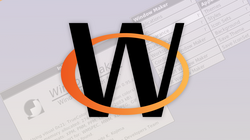news
'Wayback' Keeps Old Linux Desktop Environments Alive on Wayland
Quoting: 'Wayback' Keeps Old Linux Desktop Environments Alive on Wayland —
The desktop Linux ecosystem has been slowly migrating from X11 to Wayland, which is leaving behind some desktop environments. The Wayback project aims to fix that, and it has just reached its first preview release.
First, some Unix history. The X Window System, currently known as X11, was the main method of displaying graphical interfaces on Linux and Unix-based systems for decades. It accumulated many performance, usability, and security problems that couldn’t be addressed without a substantial rewrite, so Wayland was created as a potential replacement. Wayland is now used by default instead of X11 on Ubuntu, Fedora Workstation, Debian, and many other Linux distributions.
Even though you can run applications under Wayland that were designed for X11, with the built-in XWayland compatibility layer, the same is not true for desktop environments. Common Desktop Environment (CDE) and Window Maker don’t support Wayland at all. MATE is making progress on Wayland support, and LXQt is mostly functional on Wayland but still considered “rather experimental.”
Update
See more here:
-
Wayback 0.1 released
Version 0.1 of the Wayback project has been released:
Wayback is an X11 compatibility layer that allows for running full X11-only desktop environments using Wayland. It is essentially an X11 server backed by Wayland, leveraging wlroots and Xwayland. Our goal is for Wayback to eventually be a completely drop-in replacement to the Xorg binary, thus reducing maintenance burden for distro maintainers.
Liam:
-
Wayback 0.1 debuts as early Wayland server for X11 diehards
Wayback 0.1 is out, the first preliminary release of the new Wayland display server whose announcement we reported a few weeks ago.
"Just enough Wayland to make Xwayland work," reads the new site's handy strapline. It's a good summary – if you know what Xwayland is.
This first, preliminary release arrives less than a month after the project's initial announcement. This means it's very early days yet. This is still new, experimental software, it's quite far from feature-complete, and a whole list of stuff doesn't work yet. Don't get too excited yet. That said, it sounds promising.

